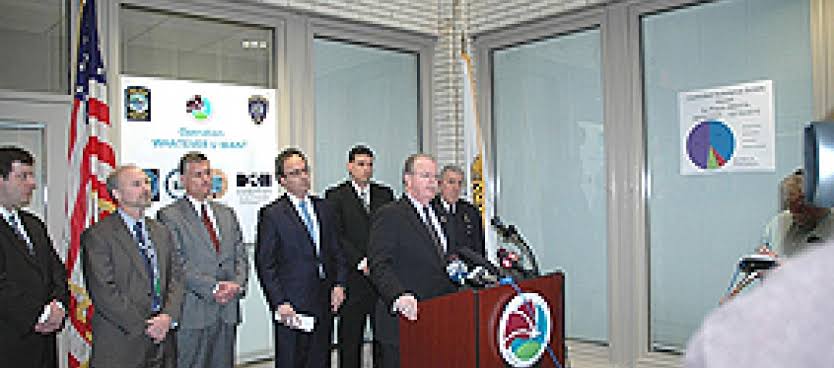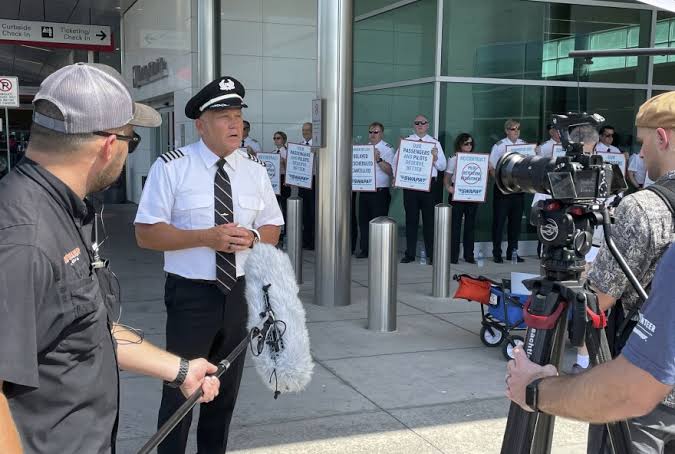Niagara Falls Doctor Among Fourteen Charged In Major Prescription Drug Investigation
Niagara Falls Doctor Among Fourteen Charged in Major Prescription Drug Investigation
In a significant development that has shaken the healthcare community, a Niagara Falls doctor is among fourteen individuals charged in connection with an extensive prescription drug investigation. The charges, which have stunned both local residents and healthcare professionals, stem from allegations that the doctor and others were involved in a widespread operation of illegal prescription drug distribution.
This case is not only a criminal matter but also a deeply concerning public health issue, highlighting the risks posed by prescription drug abuse and the role that healthcare professionals can sometimes play in facilitating such abuse. As the investigation unfolds, the repercussions could be far-reaching, affecting not only those involved in the operation but also the patients they served and the broader community.
Background of the Case
The investigation into the illegal prescription drug operation began several months ago when law enforcement authorities received multiple tips regarding suspicious activities involving prescription medications. Specifically, authorities noticed a pattern in which prescriptions for controlled substances such as opioids were being written for patients who showed no legitimate medical need. These medications, which included highly addictive painkillers such as oxycodone and fentanyl, were being distributed through various means, including direct sales and black market dealings.
The Niagara Falls doctor, whose name has not been fully disclosed at the time of this report, is accused of being a key figure in the operation. According to investigators, the doctor allegedly prescribed large quantities of controlled substances to individuals who were not patients or who had no medical necessity for the drugs. Some of these individuals were reportedly selling the medications on the street, leading to widespread abuse of prescription drugs in the area.
Alongside the doctor, thirteen other individuals, including pharmacists, office staff, and alleged street-level drug dealers, have been arrested and charged. These individuals are accused of conspiring to distribute and sell prescription drugs illegally, contributing to a growing public health crisis.
The Role of Healthcare Professionals in the Opioid Crisis
The involvement of healthcare professionals in drug distribution schemes is a major concern in the ongoing opioid crisis. While the vast majority of doctors and medical professionals work diligently to provide appropriate care to their patients, there are unfortunately a number of cases in which individuals in positions of trust exploit their authority for personal gain.
In this case, the Niagara Falls doctor allegedly violated the very ethical principles that govern the medical profession. Physicians are entrusted with the responsibility of diagnosing and treating medical conditions, and their decisions regarding the prescription of controlled substances are supposed to be based on sound medical judgment. When a doctor crosses this line and begins prescribing medications indiscriminately or inappropriately, it not only jeopardizes the health of individual patients but also contributes to broader societal problems, such as addiction and overdose deaths.
While some of the individuals arrested in the investigation may not have been directly involved in prescribing drugs, their roles in enabling the distribution network were nonetheless crucial. Pharmacists, office staff, and others who participated in filling fraudulent prescriptions or facilitating the sale of illicit drugs helped perpetuate the cycle of addiction that has plagued communities across the nation.
Impact on the Community and Public Health
The impact of the prescription drug scandal extends far beyond the legal charges and criminal trials. At the heart of this issue is the devastating toll that prescription drug abuse takes on the health and well-being of individuals and their families.
For years, the Niagara Falls area, like many communities across the United States, has struggled with the opioid crisis. According to local health authorities, opioid overdoses have been a leading cause of death in recent years, and the distribution of illegal prescription drugs has only exacerbated the problem. While the arrest of the doctor and others involved in this scheme may represent a temporary victory in the fight against the opioid epidemic, the broader issue remains unresolved.
The consequences of prescription drug abuse are profound and far-reaching. Individuals who become addicted to painkillers often face significant challenges in their personal lives, including strained relationships, loss of employment, and financial instability. Additionally, the physical and mental health effects of addiction can be devastating, leading to chronic health problems, increased risk of overdose, and, in some cases, death.
In response to the growing crisis, local public health agencies have been working to implement a variety of strategies aimed at reducing prescription drug abuse. These strategies include increasing awareness about the dangers of opioids, improving access to addiction treatment services, and working with law enforcement to crack down on illegal drug distribution networks.
The Legal Case and Criminal Charges
As the legal case against the Niagara Falls doctor and the other individuals involved in the prescription drug operation progresses, prosecutors will need to prove that the defendants knowingly participated in a criminal conspiracy to distribute controlled substances. This will likely involve presenting evidence of fraudulent prescriptions, communications between the defendants, and other documentation that ties the individuals to the illicit drug trade.
The charges brought against the fourteen individuals are serious, with many facing charges related to drug trafficking, conspiracy, and the unlawful distribution of controlled substances. Depending on the severity of the charges and the evidence presented, the defendants could face significant prison sentences if convicted.
For the Niagara Falls doctor, the stakes are particularly high. In addition to facing criminal charges, the doctor could lose their medical license, effectively ending their career. In cases such as this, where healthcare professionals are accused of misconduct, state medical boards often conduct their own investigations to determine whether the individual is fit to continue practicing medicine.
Broader Implications for Healthcare Providers
The case involving the Niagara Falls doctor is a stark reminder of the responsibility that healthcare providers have to ensure that their prescribing practices are ethical and in the best interests of their patients. The opioid crisis has placed significant pressure on medical professionals, who must navigate the fine line between appropriately prescribing pain medication for legitimate medical conditions and avoiding over-prescription or abuse.
In recent years, medical boards, healthcare organizations, and government agencies have implemented more stringent guidelines and monitoring systems to curb over-prescribing. The goal of these initiatives is to ensure that controlled substances are used only when necessary and that patients are monitored closely to prevent misuse.
For healthcare providers, it is essential to stay informed about the latest best practices for prescribing pain medications and to exercise caution when prescribing potentially addictive substances. Additionally, providers should remain vigilant for signs of drug abuse in their patients and take steps to intervene when necessary, such as referring patients to addiction treatment programs or adjusting their treatment plans.
Looking Ahead: Addressing the Opioid Epidemic
While the arrest of the Niagara Falls doctor and others in this case may be a step forward in the fight against prescription drug abuse, it is only one small part of a much larger issue. The opioid epidemic is a complex public health crisis that requires a multifaceted approach to address. Law enforcement, healthcare providers, public health organizations, and communities must all work together to reduce the availability of illicit drugs, prevent addiction, and provide support for individuals who are struggling with substance use disorders.
One of the key elements of this approach is expanding access to addiction treatment services. Many individuals who become addicted to prescription drugs do not have the resources or support systems necessary to seek help. Increasing funding for addiction treatment programs, expanding access to mental health services, and providing education about the risks of drug abuse are essential steps in addressing the root causes of the opioid crisis.
Another critical aspect of the solution is improving education and training for healthcare providers. Medical professionals must be equipped with the knowledge and tools they need to effectively manage pain while minimizing the risk of addiction. This includes staying up to date on the latest guidelines for prescribing opioids, recognizing signs of abuse, and knowing when to refer patients for specialized treatment.
The case of the Niagara Falls doctor and the fourteen individuals charged in connection with the illegal distribution of prescription drugs serves as a stark reminder of the dangers of prescription drug abuse and the role that healthcare professionals can play in either mitigating or exacerbating the crisis. While the legal proceedings will unfold in the coming months, the broader public health issue remains a significant concern. The fight against the opioid epidemic requires a united effort from all sectors of society, and this case is just one example of the many challenges that must be addressed in order to reduce the devastating impact of prescription drug abuse on communities across the country.






